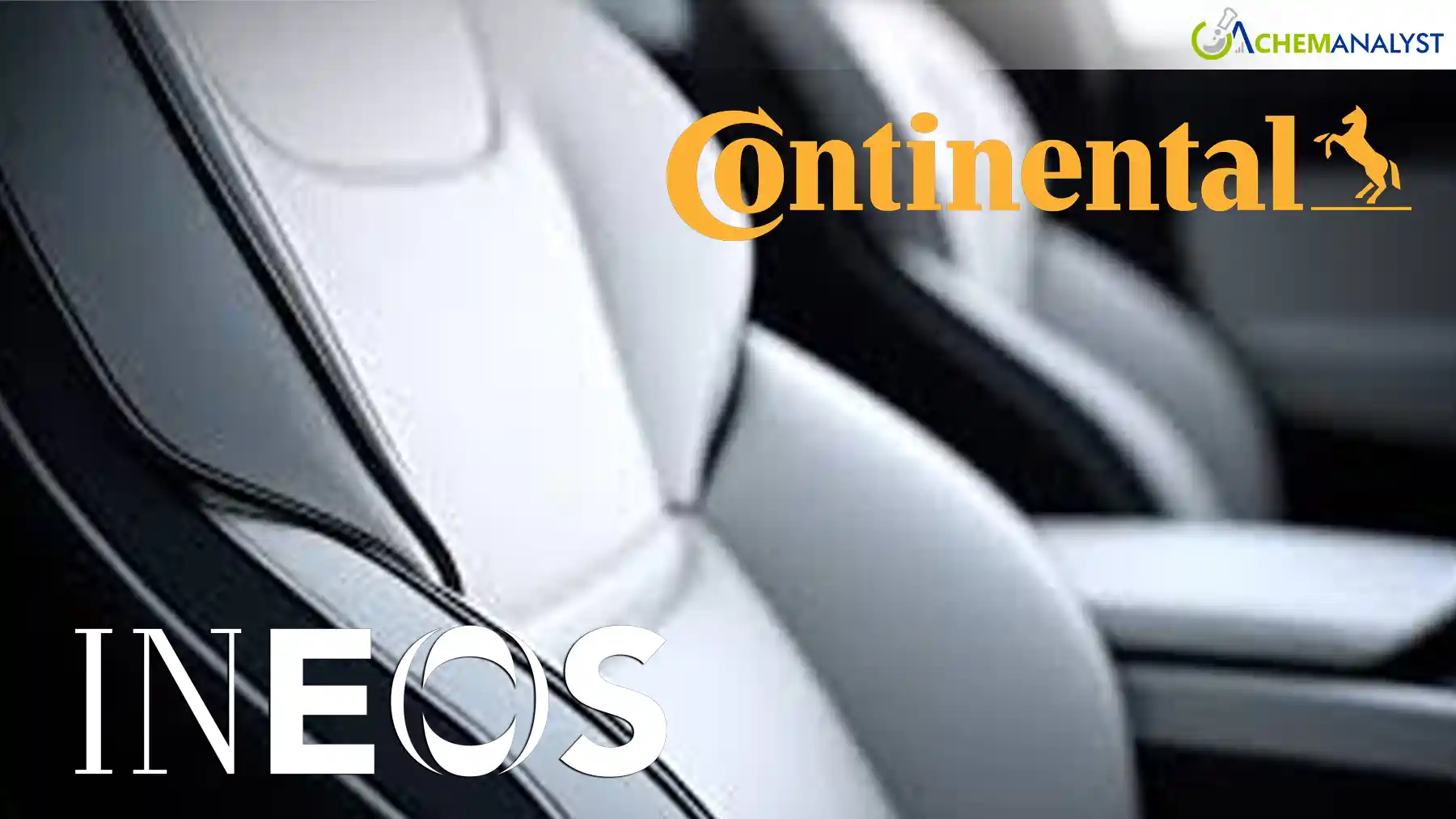Welcome To ChemAnalyst

Continental's ContiTech sector is making a major sustainability move by switching to INEOS Inovyn's NEOVYN™ PVC, which has a product carbon footprint 37% lower than the industry average
Global technology company Continental has announced a significant stride in its sustainability journey, focusing on reducing the carbon footprint of its Polyvinyl Chloride (PVC)-based products. The company’s group sector ContiTech, a specialist in material-driven solutions, is strategically transitioning the majority of its PVC applications to use NEOVYN™ PVC, a CO2-optimized material supplied by strategic partner INEOS Inovyn.
This switch marks a considerable improvement in Continental's material sustainability, as the new NEOVYN™ PVC boasts a product carbon footprint that is approximately 37% lower than the European industry average for conventional PVC. This substantial reduction is a direct result of targeted decarbonisation efforts by INEOS Inovyn, which primarily involve integrating renewable energy sources—including hydropower, wind, and solar power—and low-carbon hydrogen into their production processes.
PVC is a crucial material for ContiTech, ranking alongside rubber in its importance due to its versatility, formability, and economical processing. The new, improved PVC formulation will be used across an extensive portfolio of Continental products, demonstrating the company's commitment to embed sustainability into core operations.
Products slated for the transition include:
• Industrial Hoses and Belts: Food hoses and heavy-duty conveyor belts for demanding sectors like mining.
• Construction and Chemical Solutions: Fasteners and seals for the chemical and construction industries.
• Surface Solutions: Functional and design-oriented surface materials for automotive interiors (such as seating), as well as applications in ships and buildings globally.
Christian Dohmen, responsible for global Rubber & Chemicals Purchasing at ContiTech, emphasized the measurable impact of this decision. "Decarbonization starts with the materials," Dohmen stated. "By switching to the new PVC alone, we will achieve an emission reduction of around 31.5% in the future compared to the previous PVC range in relation to the quantities used in 2024." This move sends a clear signal to customers who are increasingly prioritizing climate-friendly and recyclable products.
The reduced product carbon footprint of the NEOVYN™ PVC is underpinned by a robust, certified supply chain. INEOS Inovyn's decarbonisation strategy centers on a consistent switch to renewable energies at their production sites, utilizing local sources like hydropower from Norway, wind energy from the North Sea, and a modern photovoltaic system in Belgium.
Arnaud Valenduc, Business Director at INEOS Inovyn, welcomed the partnership, noting, "It is exciting to see global companies like Continental make such a strong and clear commitment to environmentally responsible products, demonstrating our shared ambition to deliver low carbon solutions."
The adoption of NEOVYN™ PVC is framed by Continental as a crucial milestone in its broader journey toward more sustainable material use. The company’s focus on reducing CO2 emissions extends beyond PVC. Continental is actively pursuing innovation in its rubber compounds, aiming to increase the proportion of renewable and recycled raw materials, and further developing innovative rubber recycling solutions. The strategic objective is to integrate other basic materials with an improved CO2 footprint into series production in the future.
We use cookies to deliver the best possible experience on our website. To learn more, visit our Privacy Policy. By continuing to use this site or by closing this box, you consent to our use of cookies. More info.
